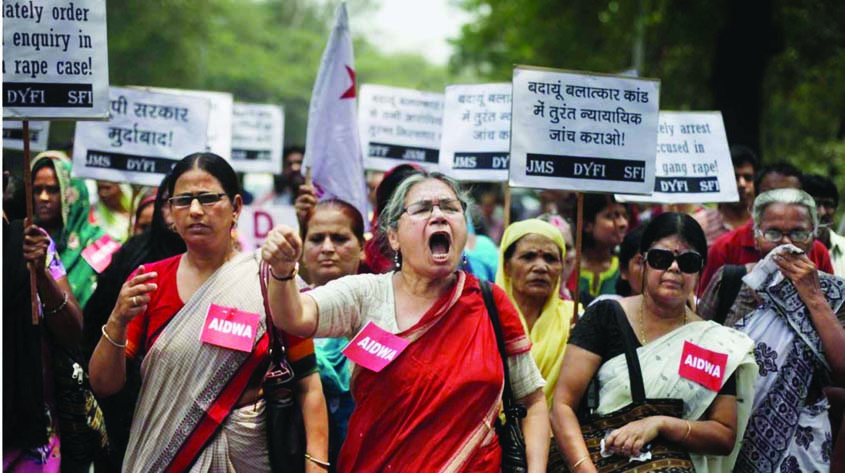Feminism has many definitions and interpretations. While exploring many kinds of Indian Feminism in the twentieth century, scholars have established that there is a rapidly growing critical body of thought on the matter. These ideas range from ‘feminist nationalists’ of the Indian national movement to the “Gandhian Feminism”, “Eco-Feminism” and the idea of “new women” as viewed through the rise of the of the Hindi Right. From the 1920s Indian women who were active in the national movement ardently opposed the use of the term ‘feminism’ as understood in Europe and America on the grounds that it projected an “anti-male” ideology. This relationship between western and Indian feminism continues to be debated intensely within the women’s movement in India.
In the 1970s, the rise of the liberal and radical feminism in the west meant that there would be a focus on equal opportunities in education, employment and also towards ending violence against women all around the world. However it was soon realised that India had not benefited from
In her book The Emergence of Feminism in India, Padma Anagol defines Indian feminism as, “A theory and practice based on presenting a challenge to the subordination of women in society and attempting to redress the power between sexes.” The intelligent use of the term “subordination” as opposed to “oppression” makes all the difference in this definition. As indicated by Karen Offen in her work ‘European Feminism’, there is sharp difference between oppression and subordination. Subordination can be verified through examining laws, institutional practices and norms and customs of a society, whereas oppression is a psychological response which is highly subjective.
Feminist movements in India have posed challenges to established patriarchal institutions such as family, dominant social values and legal structures particularly with regard to violence against women.
Feminist movements in India have posed challenges to established patriarchal institutions such as family, dominant social values and legal structures particularly with regard to violence against women. Malavika Karlekar’s work showed a range of responses made by Bengali women in 1860s that hinted towards feminist ideas. While studying the sub-cultures in the “antaphur” or the inner house, Karlekar demonstrated how education enabled at least an elite section of Bengali women to question male constructions of India femininity. In modern India, feminist demands have led to several appeals in the form of conventions – Convention Against Discrimination of Women (CEDAW), Convention on Combating the Crimes of Trafficking in Women and Children etc. In cases of other issues such as dowry deaths, sati prohibition, custodial rape, feminists have focused on specific roles and factors that patriarchies plays in the perpetration of these gender-based crimes.
At present we have several women’s organisations, which maybe separated by political ideologies, however often come together and show solidarity while voicing their concerns about violence against women. These include National Federation of Indian Women (NFIW), All India Democratic Women’s Association (AIDWA), All India Women’s Conference (AIWC), Young Women’s Christian Association (YWCA); Mahila Dakshita Samiti (MDS), Joint Women’s Programme (TWP) and Centre for Women’s Development Studies (CWDS). They are also popularly referred to as the “Seven Sisters”.
As more and more young girls and women are being aware of their rights and strongly voicing their concerns about oppression of women in society, it is important that we not only call ourselves a “feminist” and simply throw around pseudo-jargon about feminism but truly understand what the term and its ideology reflect.
The author is a doctoral candidate and fellow of the Higher Education Academy of UK

